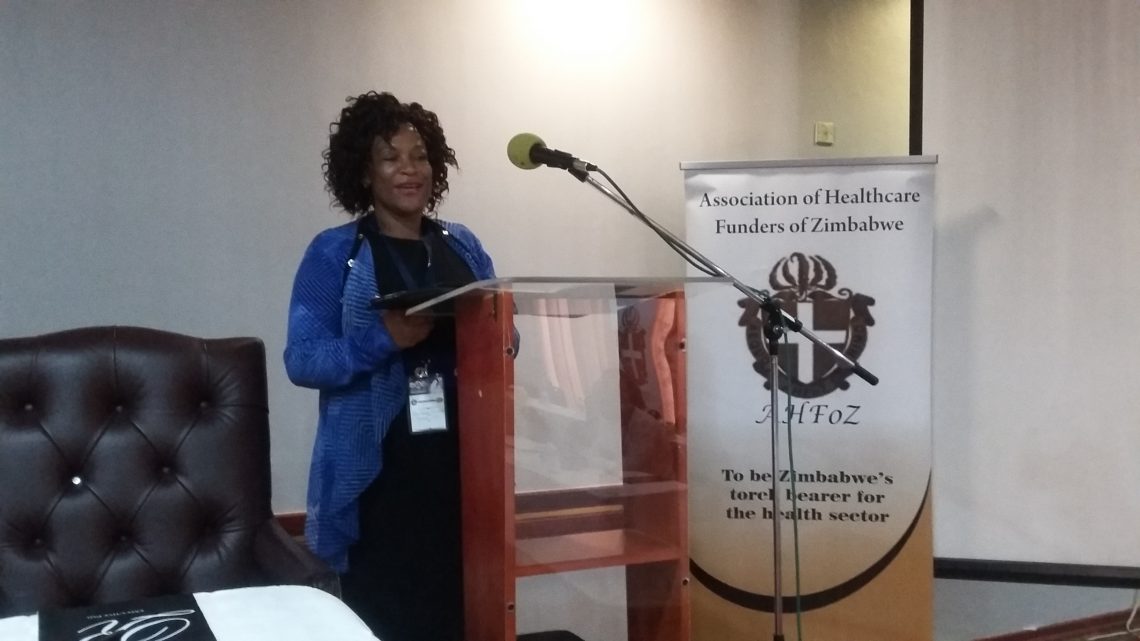There is need for an all-stakeholder collaboration in fighting fraud rampant in the healthcare sector, it has emerged. In her welcome remarks at the Healthcare Fraud Indaba held in Harare, Shylet Sanyanga, the Chief Executive Officer of the Association of Healthcare Funders of Zimbabwe (AHFOZ) said fraud is best addressed when stakeholders collaborate in fighting the menace.
“As the umbrella board for medical aid societies in Zimbabwe, we should engage other stakeholders so as to speak with one voice against healthcare fraud. Both service providers and medical aid members commit fraud. It is for that reason that we realised that we can not fight fraud alone and decided to take other stakeholders on board,” Sanyanga said.
Representatives that attended the conference came from the ministry of health, information communication technology experts, the police, medical practitioners and the media among others.
“As AHFOZ, we have a risk management unit that investigates healthcare fraud and takes remedial action after conducting thorough and appropriate investigation. In the investigations we involve players in the law enforcement arena. We involve all stakeholders because both service providers and members can connive to engage in fraudulent activities. This is the second such meeting we have organised in order to effectively eradicate fraud from the healthcare sector,” Sanyanga added.
According to Luckmore Bunu from the Retail Pharmacists Association a number of factors are fuelling fraud. Most patients have no access or has limited access to both medicines and resources while funders with limited resources. On the other hand, the government has non-functional public health institutions hence patients get services from the private sector.
By definition, fraud is an unlawful and intentional making of a misrepresentation that causes actual prejudice or potential prejudice to another.
The forms of fraud in the pharmaceutical sector include different pricing for patients on medical aid and those that use cash as well as brand substitution for medicines.
Proctor Nyemba, an expert in forensic investigations said it was important to have public-private cooperation against fraud. He called for an update of the criminal law to deal with healthcare fraud.
Stephen Banda, the Director Policy, Planning and Coordination in the Ministry of Health and Childcare said healthcare fraud diverts resources from the provision of quality patient care.
“Fraud has a direct and negative impact on human life in terms of diverting resources needed for effective healthcare. The World Health Organisation has identified fraud as one of the top ten causes of inefficiency in healthcare spending,” Banda said
Governments everywhere are grappling with rising healthcare costs and increased demand for healthcare services. As a result, health systems everywhere are under pressure due to finite budgets and competing priorities. As governments struggle to stretch their healthcare funding and produce better results, many are increasingly turning to partnerships with the private sector.
“Tackling healthcare fraud is central to having an effective health system and ultimately improving health outcomes. There are good reasons to build coalitions that work together in the fight against fraud. They are able to foster learning about problems together, agreement on common high standards and supporting each other,” Banda said.
He added that approaches to dealing with fraud also need to move away from a ‘pay and chase’ focus to a proactive and comprehensive approach that identifies and applies the right solutions focused on outcomes, such as reduction in losses.
Mechanisms that help to prevent/mitigate fraud include the use of appropriate payment mechanisms; effective claims processing; effective data analysis and clinical audits and claims verification.
He proffered recommendations to address the challenge of fraud. These include
Encouraging and protecting and rewarding whistleblowers; early reimbursement for providers with clean claims; tariff incentives for adherence to treatment protocols; training of health insurance staff in fraud detection, and the increased advocacy and sensitization on the impact of fraud.
